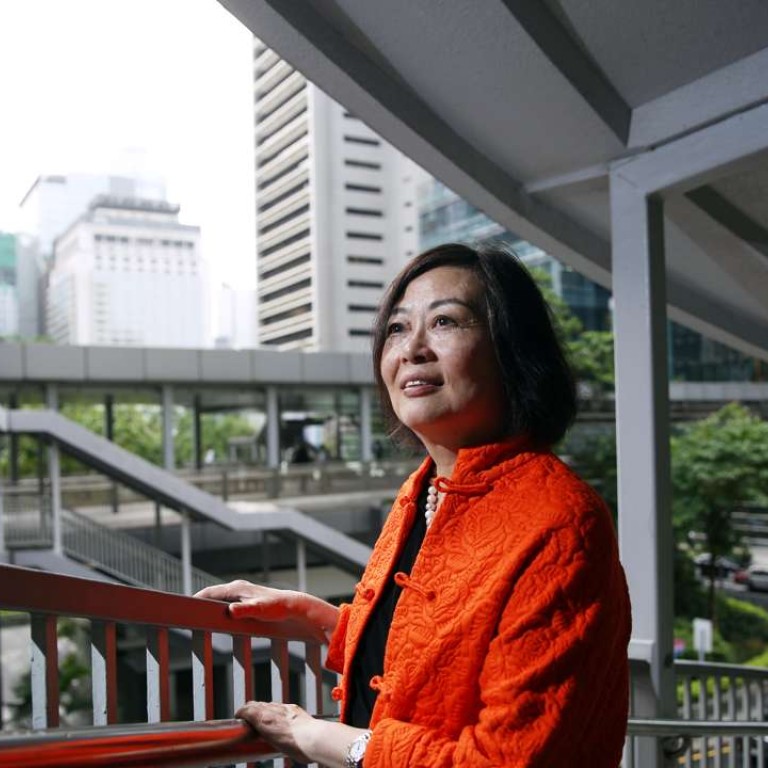
Hong Kong government pours cold water on call for a human rights commission
Executive councillor Anna Wu says the city needs to create a new equality role to keep in tune with a changing political and social landscape
Executive councillor Anna Wu Hung-yuk has urged the government to establish a human rights commission in the city, in keeping with the changing political and social landscape – only to have it promptly turned down.
Wu, a former head of the Equal Opportunities Commission who now chairs the Competition Commission, also lamented Hong Kong’s lack of a minister in charge of human rights.
Arguing that it had led to fragmented adherence to important principles such as equality by the government, she called on the secretary for constitutional and mainland affairs to take up a second title of secretary for human rights and equality.
“There is no minister today responsible for pushing the agenda to further human rights and equality,” Wu said. “They split up the portfolio of equality to be pushed under different bureaus ... which actually means that no one is in charge of advocating this.”
She suggested the proposed secretary for human rights and equality take up a coordinating role within the administration, and also make sure that different bureaus and departments were in compliance.
But the government was quick to pour cold water over Wu’s suggestion. A spokesman for the Constitutional and Mainland Affairs Bureau said Hong Kong had no need for a human rights commission, or an official specifically in charge of human rights issues.
The “existing mechanism ... has worked well”, the spokesman said, referring to the work of the EOC and the Office of the Privacy Commissioner for Personal Data, as well as the Legislative Council, in monitoring the government on such issues.
“There is no need for establishing a human rights commission to duplicate or replace the work of the existing mechanism or changing the title of any office,” the spokesman said, pointing out that the media also “reports freely on issues of public interest”.
The rights of refugees, minorities, marginalised domestic workers and trafficked persons are not adequately being addressed in the existing framework
Wu, who chaired the EOC from 1999 to 2003, said the anti-discrimination watchdog – which celebrated its 20th anniversary on May 20 – should continue to enforce legislation against discrimination based on sex, disability, family status and race, while the proposed human rights commission could look at the wider breach of rights, including civil and political rights.
Wu said the reason for separating the two was to avoid jeopardising the EOC’s work, as expanding the commission’s work to cover human rights would be a tough battle.
Human Rights Monitor director Law Yuk-kai said the city had always needed a human rights commission and its establishment was urged by various United Nations conventions. He agreed that it should be a separate entity.
“With growing cross-border disputes and issues, it’s even more important now,” Law said.
“A strong, independent statutory body overseeing human rights would help in checking the administration of justice, deprivation of liberty, personal safety and freedom ... and more.”
He cited the case of Hong Kong’s missing booksellers and the lack of media access to question visiting state leader Zhang Dejiang recently as examples.
Human rights lawyer Mark Daly welcomed a new push for such a body, but pointed out that the government would not be interested.
“The rights of refugees, minorities, marginalised domestic workers and trafficked persons are not adequately being addressed in the existing framework and the courts are becoming increasingly insensitive to rights issues, adding new procedural hurdles – in addition to cost – to deny the disadvantaged access to justice,” Daly said.
Wu agreed. “In reality, no government would voluntarily take [human rights] on board,” she said. “But it should not stop me from saying what I think we should do.”
